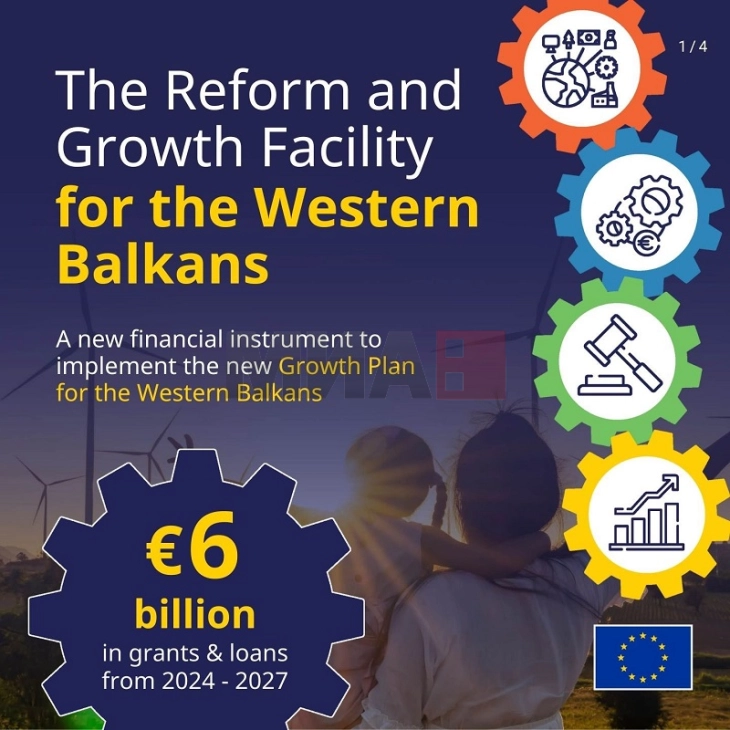EU Council adopts Reform and Growth Facility for the Western Balkans
- The facility is the financial pillar of the Growth Plan for the Western Balkans of the European Commission. It will cover the period from 2024 to 2027 and is expected to provide up to €2 billion in grants and €4 billion in loans to the EU's six Western Balkan partners in the coming years.

Brussels, 7 May 2024 (MIA) – The Council of the EU greenlit Tuesday the regulation on the formation of the Reform and Growth Facility for the Western Balkans, which will enter into force once it is published in the Official Journal of the EU.
Once in force, the Western Balkan partners will be invited to submit their respective Reform Agendas to the Commission, laying out the socio-economic and fundamentals reforms they plan to undertake between 2024 and 2027, MIA reports from Brussels.
The facility is the financial pillar of the Growth Plan for the Western Balkans of the European Commission. It will cover the period from 2024 to 2027 and is expected to provide up to €2 billion in grants and €4 billion in loans to the EU's six Western Balkan partners in the coming years.
The main aim of the facility is to support Western Balkan partners’ alignment with the EU’s values, laws, rules, standards, policies and practices, with a view to future EU membership, as well as their progressive integration into the EU single market and socio-economic convergence with the EU. The facility will support a range of socio-economic and fundamentals reforms, including reforms related to the rule of law and fundamental rights.
In order to receive support under the facility, each partner in the region must prepare a Reform Agenda, setting out the reforms it plans to undertake in order to achieve the facility’s objectives.
“The Western Balkan partners will also need to reflect on how the measures included in the Reform Agendas are expected to contribute to progressive and continuous alignment with the EU’s Common Foreign and Security Policy,” said the Council.
EU member states will have a key role in approving the beneficiaries’ Reform Agendas and, if necessary, their amendments.
Support under the Reform and Growth Facility will be also provided through the Western Balkans Investment Framework (WBIF), in the form of grants and loans, for investments underpinning the Reform Agendas, such as investments in infrastructure projects (€3 billion) and loans disbursed directly to Western Balkan partners’ budgets to accelerate growth based on key socio-economic reforms (€3 billion).
Payments will be made twice a year, provided that the partners meet the qualitative and quantitative steps set out in their respective Reform Agendas. Where the preconditions for support are not met or are no longer met, the EU may decide to withhold the release of funds, according to the Council.
General preconditions for EU support under the facility include that partners continue to uphold and respect effective democratic mechanisms, including a multi-party parliamentary system, free and fair elections, pluralistic media, an independent judiciary and the rule of law, and to guarantee respect for human rights, including the rights of persons belonging to minorities. For Serbia and Kosovo, another precondition is that they engage constructively with measurable progress and tangible results in the normalisation of their relations with a view to fully implementing all their respective obligations stemming from the Agreement on the Path to Normalisation and its Implementation Annex, as well as all past Dialogue Agreements, and that they engage in negotiations on the Comprehensive Agreement on the normalisation of relations.
To increase transparency, the Western Balkan partners will be required to set up a web portal for publishing up-to-date data on final recipients receiving more than EUR 50 000 in total over the period of four years under this facility.
Photo: MIA archive







